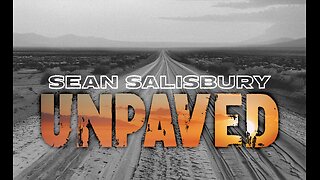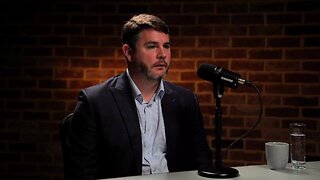Premium Only Content

Episode 1660: Magisterial Authority What are the Limits w Fr. Ripperger-Companions
The magisterial authority of the Catholic Church refers to its teaching authority, particularly in matters of faith and morals. The term "magisterium" is derived from the Latin word "magister," which means teacher. The magisterium is considered the teaching authority entrusted to the Church by Jesus Christ, and it is exercised by the Pope and the bishops in communion with him.
There are two primary aspects of the magisterium:
Ordinary Magisterium: This is the day-to-day teaching authority of the Church. It includes the teachings that are consistently and universally taught by the bishops throughout the world, even if not explicitly defined. The ordinary magisterium is expressed in various ways, such as through official documents, encyclicals, catechisms, and the liturgy.
Extraordinary Magisterium: This refers to the formal and solemn pronouncements on matters of faith and morals, especially in defining dogmas. The most solemn form of the extraordinary magisterium is an ex cathedra pronouncement by the Pope, infallibly defining a doctrine concerning faith or morals that must be held by the whole Church.
The Catholic Church teaches that the magisterium is guided by the Holy Spirit to ensure the fidelity of its teachings to the deposit of faith (the body of revealed truths in Scripture and Tradition). The faithful are called to accept the teachings of the magisterium with faith and obedience.
It's important to note that the magisterium is distinct from the administrative and disciplinary aspects of the Church, which are responsible for the organization and governance of the Church. The magisterium specifically deals with matters of doctrine and teaching.
-
 47:50
47:50
Candace Show Podcast
4 hours agoBREAKING: Judge Makes Statement Regarding Taylor Swift's Text Messages. | Candace Ep 155
61.2K69 -
 LIVE
LIVE
CatfishedOnline
2 hours agoGoing Live With Robert - Weekly Recap
157 watching -
 LIVE
LIVE
LFA TV
1 day agoEurope’s Sudden Turn Against America | TRUMPET DAILY 3.6.25 7PM
439 watching -
 4:21
4:21
Tundra Tactical
2 hours agoPam Bondi MUST Enforce Due Process NOW!
9.43K -
 56:42
56:42
VSiNLive
3 hours agoFollow the Money with Mitch Moss & Pauly Howard | Hour 1
31.6K1 -
 1:05:32
1:05:32
In The Litter Box w/ Jewels & Catturd
1 day agoShalom Hamas | In the Litter Box w/ Jewels & Catturd – Ep. 756 – 3/6/2025
88.9K36 -
 1:23:00
1:23:00
Sean Unpaved
5 hours ago $2.81 earnedNFL Free Agency
44.7K3 -
 18:25
18:25
Stephen Gardner
4 hours ago🔥The REAL REASON the Epstein Files are being HIDDEN | I CONFRONT Alan Dershowitz for details!
57.1K83 -
 1:58:44
1:58:44
The Quartering
7 hours agoTrump To Charge USAID Staff, Campus RIOT Erupts, Theo Von & Candace Owens, Ukraine Gets Worse!
98.6K61 -
 1:08:42
1:08:42
Winston Marshall
7 hours ago“This Is a Ticking Timebomb!” Trump’s Unlikely Coalition & The Woke Right w/James Lindsay
53K9